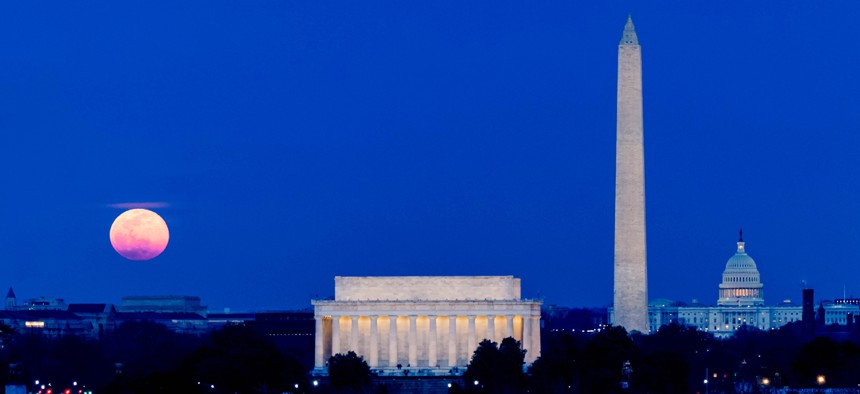
Shutterstock.com
Viewpoint: Whistleblowers are Democracy’s Last Defense
When brave individuals speak up against wrongdoing, they can mitigate the damage and prevent further harm.
Despite unprecedented partisanship and politicization, voting for the 2020 presidential election proceeded with few reports of difficulty, a testament to the strength of our democratic institutions. However, instead of conceding the election, the Trump administration is returning to its familiar playbook of retaliating against those who stand up for the rule of law, denying truth, and using executive agency functions to further its political agenda.
Just two days after media outlets called the election, President Trump fired Defense Secretary Mark Esper, who condemned the deployment of military troops to quell citizen protestors. Additionally, the Pentagon general counsel appointed Michael Ellis, a political operative who hid evidence of the president’s infamous call to the president of Ukraine, as the new general counsel for the National Security Agency. Finally, Attorney General Bill Barr issued a memo encouraging inquiries into “allegations” of election misconduct despite no evidence of irregularities and in direct contradiction to the Just Department’s Election Crimes Branch policies and procedures, prompting the resignation of the head of that organization.
A noisy exit to protest serious abuses is one option available to federal workers who witness, or are asked to commit, illegal actions or other wrongdoing. Another is remaining in their position and blowing the whistle. Throughout the last four years, in addition to the disclosures by the anonymous Ukraine whistleblower that catalyzed the impeachment of the president, brave civil servants have exercised their legal rights to blow the whistle on a multitude of issues. This includes harm to immigrants in ICE detention, politicized Justice Department antitrust investigations and interference with sentencing recommendations of the president’s friends, suppression of intelligence data about foreign interference with elections, efforts to turn the U.S. Agency for Global Media’s Voice of America into a propaganda tool of the administration, and failures to address the COVID-19 pandemic. In the face of wrongdoing, these employees simply could not stay silent.
Whistleblowers are the best sources of information about illegality and serious abuses of public trust. This is why laws exist—passed with bipartisan and nearly unanimous support—that protect employees from reprisal when they disclose violations of laws, rules, or regulations, gross mismanagement, gross waste of funds, abuse of authority, or a substantial and specific danger to public health or safety. The information whistleblowers share fuels the oversight mechanisms of democracy to promote accountability—the press, the courts, inspectors general and other oversight bodies, Congress, civil society groups, and the people, expressed in the will of the voters. While indeed they remain vulnerable to retaliation despite legal protections, whistleblowers who receive expert legal support combined with widespread solidarity can fight, and even prevent, reprisal while also making a difference.
To this end, Government Accountability Project launched the Democracy Protection Initiative to support and protect employees who choose to blow the whistle on threats to election integrity and a peaceful transition of power. By offering “know your rights” resources and pro bono representation to employees most likely to witness wrongdoing—from election and postal workers to employees in the departments of Justice, Defense, Homeland Security, and State—Government Accountability Project stands ready to help employees exercise their rights to blow the whistle, to defend against unlawful retaliation, and to ensure their disclosures promote change. We are joined by an army of partners and lawyers committed to supporting and protecting whistleblowers, including the American Constitution Society, American Oversight, Citizens for Responsible Ethics in Washington, Georgetown Law’s Institute for Constitutional Advocacy and Protection, Protect Democracy, Public Citizen, We The Action, and 21 other organizations.
Looking ahead to this transition, abuses we may see will likely attack democracy by destroying or manipulating information. For instance, agency heads may seek to cover up paper trails of misconduct by failing to comply with record retention laws, or by removing or illegally trying to gag employees with access to information about wrongdoing who would likely challenge such misconduct. False information in turn can be used as cover for politically motivated executive actions, such as using baseless claims of voting irregularities to investigate alleged voter fraud; characterizing citizen protests as “dangerous” to engage in voter suppression in the Senate run-off race in Georgia; or accusing foreign adversaries of aggression to justify armed conflict for a “wag the dog” distraction.
We are not defenseless against these transgressions though. When brave individuals speak up against wrongdoing, change happens. Truthful information disclosed early can mitigate or prevent further wrongdoing and harm. Employees who choose to blow the whistle on abuses they witness during this transition can help the mechanisms of democracy save democracy itself.
Dana Gold is senior counsel and director of Government Accountability Project’s Democracy Protection Initiative.






